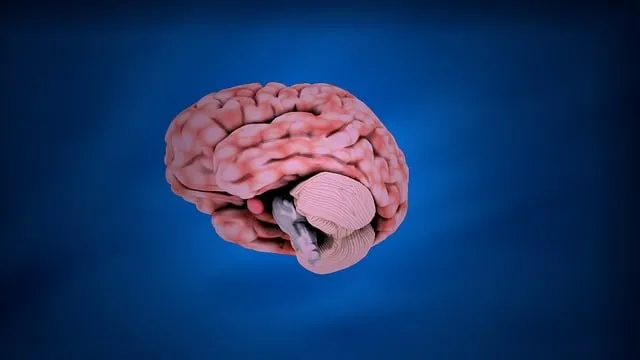Lakewood's Kaiser provides comprehensive inpatient mental health services for severe depression and crisis cases, offering structured therapeutic environments with counseling, group support, and innovative coping strategies from their Mental Wellness Podcast Series. Regular exercise, balanced diet, and quality sleep are emphasized as proactive depression prevention methods alongside professional interventions like CBT therapy and support groups.
Depression affects millions, but with proactive strategies, prevention and management are achievable. This comprehensive guide explores various tools to combat this common struggle, from recognizing early warning signs through understanding depression itself. We delve into lifestyle shifts that promote a healthier mind, the benefits of therapy and support groups, effective coping techniques, and when inpatient care like Kaiser’s services in Lakewood might be necessary for intensive treatment.
- Understanding Depression: Recognizing the Red Flags
- Lifestyle Changes for a Brighter Mindset
- The Role of Therapy and Support Groups
- Effective Coping Mechanisms for Daily Management
- When Inpatient Care is Necessary: A Look at Options like Kaiser's Services
Understanding Depression: Recognizing the Red Flags

Depression is a complex mental health disorder that significantly impacts an individual’s daily functioning and overall well-being. Recognizing the signs and symptoms early on is crucial for effective prevention and treatment. While some people may experience occasional feelings of sadness or low mood, depression goes beyond temporary emotions. It is characterized by persistent feelings of despair, loss of interest in activities once enjoyed, changes in appetite and sleep patterns, fatigue, difficulty concentrating, and in severe cases, suicidal thoughts or attempts.
Understanding these red flags is essential, especially as options like inpatient mental health services at facilities like Kaiser in Lakewood exist for those in crisis. Emotional Intelligence (EI) plays a vital role in recognizing depression; individuals with higher EI are better equipped to identify subtle changes in their emotions and those of others. This self-awareness can prompt individuals to seek support or encourage loved ones to access resources, such as Mental Health Policy Analysis and Advocacy initiatives, which promote awareness and improve access to care. Additionally, Risk Management Planning for Mental Health Professionals is crucial in identifying at-risk patients early and providing appropriate interventions.
Lifestyle Changes for a Brighter Mindset

Maintaining a healthy lifestyle is an integral part of depression prevention strategies. At Lakewood, Kaiser offers inpatient mental health services for those in need, providing a safe space for recovery. Beyond professional help, adopting certain habits can significantly impact one’s mental wellness. Regular exercise releases endorphins, which boost mood and reduce stress, making it an effective tool in managing depression. A balanced diet, rich in nutrients, supports brain function and overall mental health. Additionally, prioritizing quality sleep allows the body to rest and recharge, enhancing emotional resilience.
The Mental Wellness Podcast Series Production can offer valuable insights into various aspects of mental health, including tips for mood management. By incorporating these lifestyle changes, individuals can take proactive steps towards a brighter mindset. Remember that small, consistent efforts can lead to significant improvements in mental wellness, offering long-lasting benefits for overall well-being.
The Role of Therapy and Support Groups

Depression prevention isn’t just about managing symptoms; it involves addressing the root causes and building resilience. Therapy plays a pivotal role in this process, offering individuals a safe space to process emotions, understand triggers, and develop coping mechanisms tailored to their unique experiences. Whether it’s cognitive-behavioral therapy (CBT), interpersonal therapy, or other evidence-based approaches, professional support can equip individuals with valuable tools for navigating life’s challenges.
Support groups, another powerful resource, provide a sense of community and shared understanding. Meeting with others who have faced similar struggles fosters empathy building strategies, reduces feelings of isolation, and offers practical advice. For those exploring options like inpatient mental health services at facilities like Kaiser in Lakewood, support groups can serve as both preparation and continuation for ongoing recovery journeys. Incorporating self-care practices alongside these professional interventions is also crucial, promoting holistic well-being and long-term prevention of depressive episodes.
Effective Coping Mechanisms for Daily Management

When Inpatient Care is Necessary: A Look at Options like Kaiser's Services

When someone is dealing with severe depression or a crisis, inpatient care can be a vital option to ensure their safety and well-being. In such cases, renowned healthcare providers like Kaiser offer specialized services tailored to individual needs. For instance, Lakewood residents seeking mental health support can explore Kaiser’s comprehensive inpatient programs designed to provide an intensive, structured environment for recovery.
These programs often include therapeutic activities, one-on-one counseling sessions, and group support groups led by experienced professionals. The focus is on addressing the root causes of depression, building coping strategies, and enhancing overall mental wellness. Additionally, Kaiser’s services may incorporate confidence-boosting techniques, social skills training from their Mental Wellness Podcast Series Production, and other innovative approaches to foster long-lasting positive change.
Depression prevention isn’t just about coping; it’s about cultivating a holistic approach to well-being. By understanding the red flags, adopting lifestyle changes, engaging in therapy and support groups, and mastering daily coping mechanisms, individuals can effectively manage and even prevent depressive episodes. Moreover, recognizing when inpatient care is necessary, such as Lakewood’s Kaiser mental health services, provides access to comprehensive treatments for severe cases. With a combination of personal strategies and professional support, there’s hope for maintaining and improving mental health.






